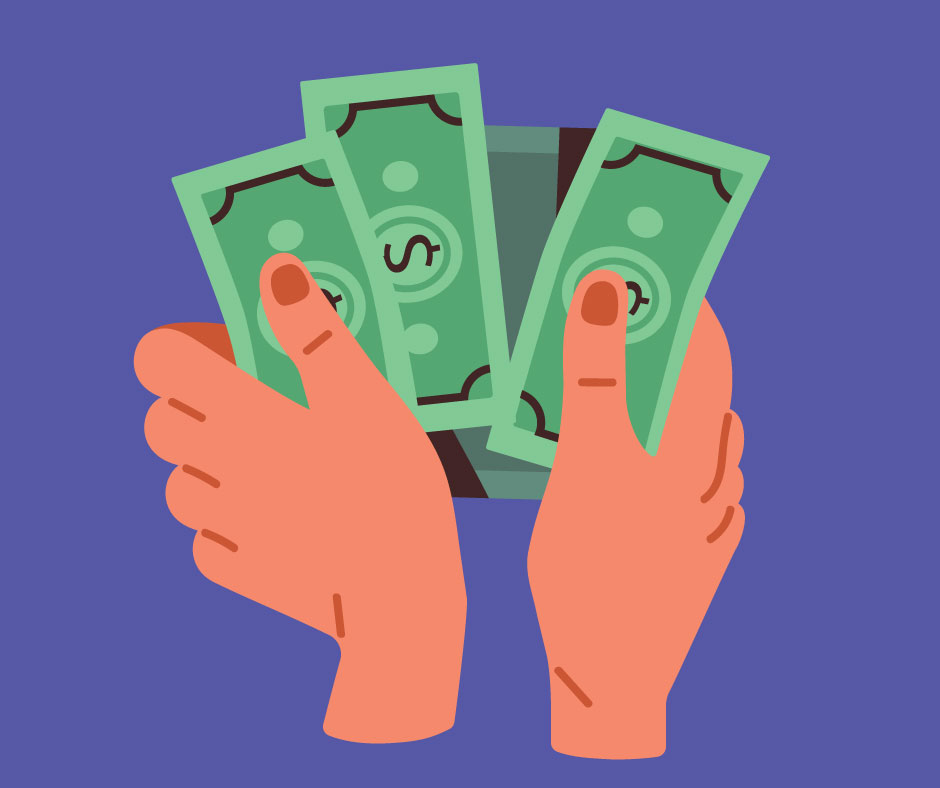- Guest Contributor
- December 28, 2021
Freelancing is a great way to leverage your skills to achieve independence. By negotiating with clients instead of working for an employer, you can often earn more money per hour and gain more control over your workload. However, like all things in life, becoming a successful freelancer takes a lot of work.
Although plenty of people succeed as freelancers, many also fail. Often, the people who fail at freelancing are the ones who don’t plan ahead and consider the most important details before starting. Naturally, you want to be as successful as possible. However, diving headfirst into freelancing without much thought can lead to trouble down the road. Therefore, to avoid any big mistakes, you should review the following seven questions to ask yourself before becoming a freelancer.
What Kind of Work Will You Do?
To succeed as a freelancer, you need to define the kinds of jobs that you’re willing to take. For the sake of example, let’s pretend that you’re a writer. As an aspiring freelance writer, maybe you just think that you’ll write anything for anyone who pays. After all, opening yourself up to any possibility may seem like a great way to appeal to as many clients as possible.
However, the best clients expect high-quality work from experienced professionals. They don’t necessarily want to hire a beginner. Thus, while you may be willing to tackle any kind of writing project, you must start by focusing on what you’re already good at. If you write great press releases but aren’t very experienced with scripts, then you shouldn’t put much time into pursuing script-related work.
You can always build skills and take jobs outside your area of expertise, but you should primarily focus on the kinds of work that fit your current skillset. Otherwise, you may be stuck earning very little while learning skills before for months or years before you’re a well-established freelancer. As you build a larger base of clients and a steady stream of income, you can then decide to branch out and try new things without much risk. Of course, if you’re only good at a niche skill that appeals to a very small market, then you may want to wait until you’ve built more marketable skills before you start freelancing full-time.
How Will You Manage a Freelance Business?
Running a business requires a lot of skill, patience, and know-how. As a freelancer, you’ll be the sole proprietor of your business, so you should expect to wear many hats if you want to succeed. You’ll have to know how to market yourself, manage taxes, invoice your clients, and so much more. Therefore, before becoming a freelancer, it’s a good idea to familiarize yourself with the basic principles of business, and you should also analyze successful businesses to see what they do right.
Moreover, you may want to reach out to established freelancers for advice and use reliable online resources to learn valuable business skills. Other freelancers have already made mistakes and shared their wisdom so that you don’t have to. By emulating successful businesses and freelancers, you can start off on the right foot and grow your business at a quicker pace.
How Will You Appeal to Potential Clients?
Do you have a good portfolio? What does your resume look like? Where are you going to find clients? How will you pitch your services to clients in a way that will impress them? Building a base of clients is the hardest part of becoming a successful freelancer, so you need to constantly be on the prowl. As mentioned earlier, you shouldn’t try to take every bit of work that you can find. However, it’s still a good idea to browse every job board, social network, and any other resources that you know of to search for clients. After all, the more you search, the more likely you will be to come into contact with quality clients.
On top of finding freelance clients in the first place, you should also know which clients to avoid. Some clients will squeeze every bit of work out of you while offering you as little compensation as possible. Other clients may offer high rates but ask for a ton of revisions or pay you several months after the work is done. Such clients aren’t ideal, and you should avoid them at all costs. Although some difficult clients may pay well or promise you a ton of work, stress can lead to a plethora of severe health conditions.
Thus, you should do your best to pay close attention to how potential clients conduct themselves. If they seem condescending, combative, or disorganized, then you should avoid them. If a questionable client reaches out with an offer, then you can kindly tell them that you already have too much on your plate. By staying away from low-quality clients, you can focus on better assignments from clients who will treat you with dignity and respect.
What Are Your Tax Obligations?
You have to pay your taxes every year. There is no way around it. If you fail to pay your taxes, then you may face stiff financial penalties. In some cases, you may even face up to five years in prison in the United States. You probably don’t want to pay fines or go to jail, so you must make sure that you understand your tax obligations before tax season comes around.
Every country has its own tax policies, so you shouldn’t assume that paying taxes in one country exempts you from taxes in another country. Unless you want to get in trouble in a foreign country, you should also contact a reputable accountant if you do any work abroad. No matter where you owe taxes, it’s a good idea to keep accurate records of all transactions and prepare for tax season early so that you can avoid any costly mistakes.
What Does Your Budget Look Like?
Money is one of the most important considerations to have before you go freelance, and that shouldn’t be much of a surprise. After all, you need money to survive. Without enough money, you may find yourself unable to afford basic expenses. Since you probably don’t want to end up living in a cardboard box in an alleyway, it’s important to know how to budget before you start freelancing.
If you’re quitting a job to start freelancing, then you should make sure that you have enough money saved up to sustain yourself for several months. Clients might not roll in right away, so you must be very conservative with your budget. Even if you only plan to freelance on the side, you should still make sure that freelancing is worth your time.
Although you may bring in a lot of money, you must also take a look at your business expenses. New equipment, travel, depreciation, and other work-related expenses can put a serious strain on your finances. For this reason, no matter how successful you are, you must know how to separate your personal expenses and business expenses. Once you have a clear understanding of your expenses, you can develop the right budget for your situation.
What Is Your Workplace Setup Like?
In 2020, there were around 2.7 million nonfatal workplace injuries and illnesses in the United States. A workplace injury can lead to serious pain and limited mobility, so you need to pay close attention to the ergonomics of your workspace before you become a freelancer. No matter what kind of work you do, you should use ergonomic equipment and learn how to properly stretch.
Otherwise, you may develop an agonizing medical condition that is difficult to live with and expensive to treat. Even if you have the most ergonomic setup, you still may experience a workplace injury. For this reason, it’s especially important to visit a doctor at the slightest hint of pain so that you can prevent it from getting worse.
Are You a Procrastinator?
Managing your time isn’t easy, and this is especially true when you’re a freelancer. When you work for a company, you usually have to go to work at the same time every day, and your boss is always keeping an eye on you. However, freelancers tend to have much more flexibility when it comes to how and when they approach their assignments.
Although freedom and flexibility can be extremely convenient, they can also be very difficult for some people to deal with. Thus, if you’re a procrastinator or don’t know how to manage your time, then you should try to deal with these issues. As far as managing your time goes, you can accomplish a lot by simply writing things down and scheduling your days.
Procrastination, on the other hand, is a tougher nut to crack. According to psychologists, procrastination results from an intense fear of failure. People who procrastinate are often anxious about starting a task because they’re afraid that their work won’t be up to their standards. Procrastination can ruin your professional reputation and drive clients away. Thus, if you struggle with procrastination, then you need to find a way to confront the fears that this behavior stems from.
Enjoy Freedom and Success by Becoming a Savvy Freelancer
Starting out as a freelancer isn’t easy, but the sky is the limit with enough perseverance and know-how. Nonetheless, you don’t want to make the wrong moves and put your financial stability at risk. Therefore, if you’re thinking about becoming a freelancer, then you ought to reflect closely on the questions posed in this article so that you can avoid missteps and maximize your odds of success.
About the Author: Valter Serdetšnõi is the Growth Marketing Manager at Xolo, an all-in-one solution to help freelancers and solo businesses manage the admin parts of running a business. Valter has extensive marketing experiences in multiple industries like SaaS, FinTech, Web Hosting, etc. He commits himself to the mission of helping freelancers to have the freedom of working from anywhere and conquer their dreams of having their own business.










